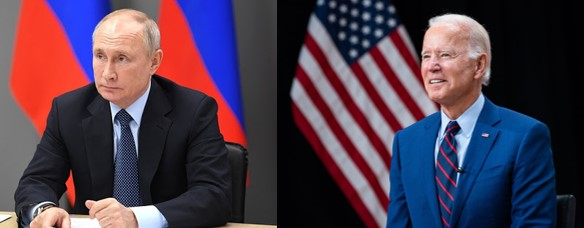
Practical information
Themes and regions
Related centers and programs
After four years of a Trump presidency marked by “Russiagate”, the election of Joe Biden at the end of 2020 marks a new turning point in Russian-American relations. While the change in the American administration allowed the New START treaty on strategic arms reduction to be saved in extremis, the interactions between Presidents Biden and Putin through the media remain marked by hostility. No breakthrough seems possible on the “hot” issues, especially Ukraine, and US sanctions against Russia have increased. Should we expect a further deterioration of the relationship? Who are the main actors in the bilateral dialogue, and how are they positioned? What are the possible areas of cooperation?

Speakers:
- Dmitri Trenin, Director of the Carnegie Moscow Center
- Matthew Rojansky, Director of the Kennan Institute, Woodrow Wilson Center, Washington
Discussant: Emmanuel Dreyfus, Russia Researcher, IRSEM
Chair: Tatiana Kastouéva-Jean, Director of the Russia/NEI Center, Ifri
The seminar will be held in English without translation, under the rule of Chatham House.
Reserved for public and private partners of the Ifri Russia/NEI Centre. By non-transferable personal invitation.
This roundtable is organized within the framework of the "Russia, Eastern Europe and South Caucasus Observatory" with the support of the Directorate General for International Relations and Strategy (DGRIS), Ministry of the Armed Forces.
Videoconference accessible via Zoom and in audio mode by phone. Access codes will be sent by email to those registered the day before the debate.
Related Subjects
Other events

Paris Naval Conference 2026: Naval Rearmament and Operations in Contested Waters
This fourth edition of the Paris Naval Conference (CNP), bringing together high-level military, industrial, and academic speakers, will address the challenges associated with general naval rearmament and naval operations in increasingly contested environments.





